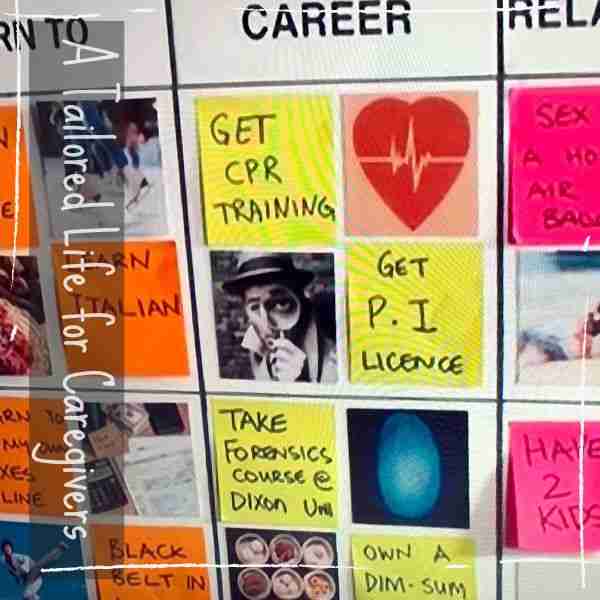
The Make Your Anger Productive Series
- Uncover the Roots of Your Anger
- Embrace Your Anger: Why It Helps
- Permission to Set Yourself Free: Let Go and Feel
- 6 Affirmations for Anger
- Taming Your Inner Volcano: Release Toxic Feelings
- Train Like a Warrior to Relax Like a Buddha
- Journaling for Angry People
- Anger as a Tool for Excellence: Channeling Frustration to Reach Goals
- How to Let Anger Fuel Your Purpose
- It’s OK to Get Mad: Dealing with Unexpected Anger
- The Art of Replacing Anger with Joy: Replace Frustration with Fulfill
- The Power of Rage: Using Anger to Fuel Self-Discipline
- What’s Triggering You? – Tap into Deep Self-Awareness
- Hear the Roar: The Transformative Message of Your Anger
Do you wonder how to finally get out of your own head and stop letting anger pull you into a tailspin of procrastination and counter-productivity?
One of the biggest challenges to getting done what we want to do is that we let people and situations distract and derail us from our goals.
Do you have something to be angry about? Throughout our lives, we may have occasion to seriously harbor some hostile feelings. This is more than the random irritation that gets you a little bent out of shape. At times, serious stuff goes down in our life, and it impacts us in fairly significant ways.
First and foremost, anger is a normal and natural emotion. Give yourself permission to feel the feelings. Many people walk around suppressing emotions, and this is so unhealthy. You probably have heard the term suppressed rage. You’ve also probably read news headlines about people completely losing it and taking their anger out on loved ones or other people who they cross paths with in their daily lives. Rage is a dangerous thing to be carrying around with you.
Do you really want to be that enraged person? Of course, you don’t. No one wants to think of themselves as angry. But it happens. That said, anger can be a catalyst for incredible growth and change if we let it. Step One is facing the feelings.
When anger strikes, we can learn to simply observe ourselves in a detached way, and then use those feelings to initiate positive change in our lives. Instead of repressing our emotions, which makes them even bigger and more powerful like an internal implosion waiting to happen, we can learn to control and direct that inner passion and energy.
Yes, anger can be channeled.
Think about it. It’s not so terrible to be angry, even if you might feel like you’re the absolute worst, ugliest, and most unlovable you at that moment. Emotions cause us to become more aware. This is our psyche asking us to open our eyes, observe whatever is happening in our lives, and set some things in motion for positive change.
If you seem prone to feeling guilty about your anger, put a stop to it and let your feelings flow. Don’t let guilt override the passion that is inside you waiting for you to harness it.
Why would you feel guilty anyway? Maybe family members had a way of guilting you any time you tried to pipe up with your opinion or express yourself either emotionally or intellectually. If your family did that to you, it’s no wonder that you feel angry. Time to transcend your past, and grow.
Be okay with how you feel. As long as you aren’t doing something that would hurt another person, the feelings are okay; anger at times is normal and natural. It’s what we do with the feelings that can be destructive… or empowering, depending on what you choose.
Again, listen to your gut and pay attention to what’s happening inside you, outside you, and all around. Look for the transformation that needs to happen in order for you to move past the angry feelings that currently hold you hostage.
Remember, you’re not weird or abnormal if something happened in your life and the result is that you feel angry. But again, if strong emotions erupt inside of you on a daily basis, you really want to pay yourself some mind. Take steps to work through those feelings so you can emerge on the other side of the emotions with greater clarity about yourself and your situation.
If you frequently find yourself embroiled in angry moments, you might want to seriously sit down with yourself and ask why. Of course, we all feel angry from time to time. Each day, you may find one or two things that get you a little bit worked up.
Maybe it’s another harried morning and you’re worried about being late for work when someone cuts you off in traffic. Maybe the wait staff forgot to bring syrup with your waffles and no one’s been back to your table for 15 minutes. We all get a little ticked off from time to time.
But there is a big difference between these mini flare-ups of frustration as opposed to daily surges of rage that boil up inside of you for seemingly no reason, raise your blood pressure, and make you say and do things that you may regret after the fact.
You may be well aware of what you feel angry about and why. Some people are very in tune with their own emotions. Things happen in life and we just feel really let down and frustrated. It could be about anything, really.
Maybe you graduated college, are struggling to find a new job, and feel confined while stuck living in your parents’ home. Maybe they condescend and belittle you. You’re forced to live by their rules which don’t suit you as a grown adult who had been living on your own for some time prior to this. For sure, that will make you feel angry.
Or maybe you were in a long-term relationship and your partner decided to break it off with no warning. That can certainly cause great pain and a huge blow to the ego, not to mention loneliness and sadness.
Some people refuse to feel sad or bereft over the loss of someone for whom they felt a deep love and attachment. Instead of giving themselves the gift of tearful release, they instead choose to hold in their emotions which grow like a mushroom cloud. Sadness becomes anger. You feel indignant, betrayed, and vengeful.
This is normal. It’s what happens sometimes when someone hurts us, whether intentionally or not. Our ego takes a hit and we lash out in defense of ourselves.
But even so, just because we faced a circumstance that legitimizes angry feelings, it doesn’t mean that we should be taking out those feelings on the people around us. It also doesn’t mean that we should be holding in those feelings and doing damage to ourselves internally.
Next: Embrace Your Anger: Why It Helps | Last: Hear the Roar: The Transformative Message of Your Anger



Leave a Reply